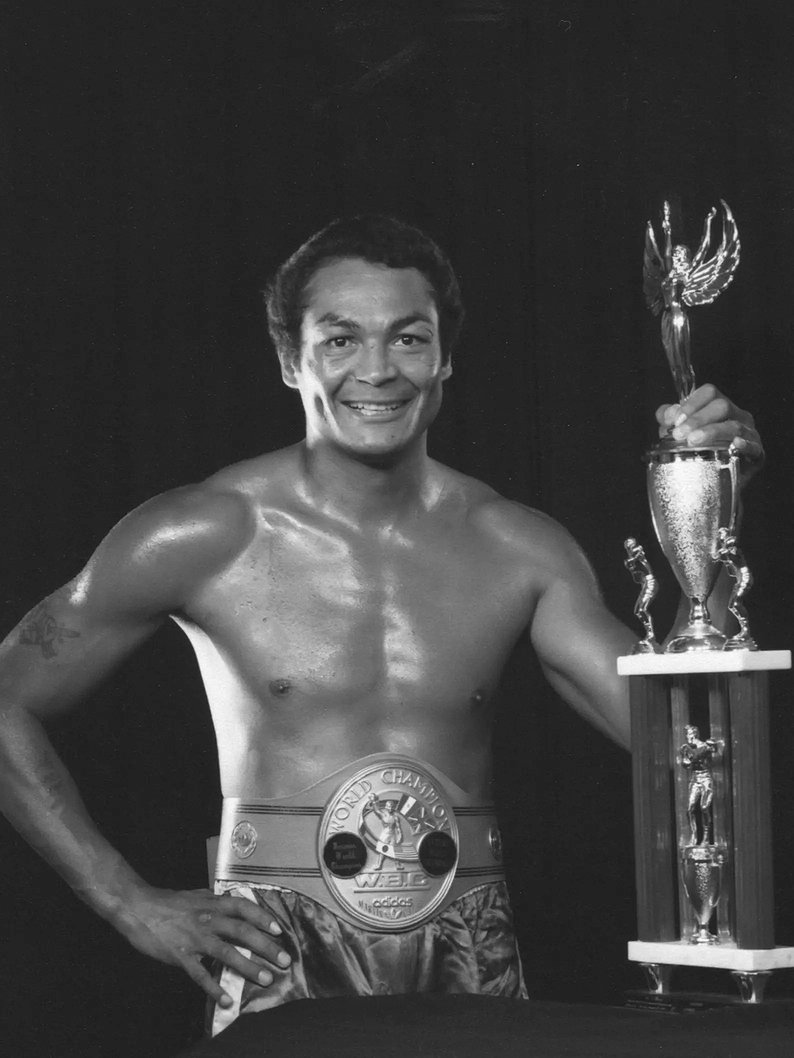The never-ending story: Marvin Camel inducted into Nevada Boxing Hall of Fame
In his office, Marvin Camel's career in boxing is on full display in the form of memorabilia and championship belts, a book on his life, "Warrior in the Ring," and large notebooks full of articles about his exploits.
Camel, now 73, went from the Flathead Indian Reservation to traveling the world, becoming the first Native American champion in boxing and the first to win the cruiserweight championship in two different commissions. The southpaw was introduced into the Nevada Boxing Hall of Fame Aug. 9-10, and traveled there with his family to celebrate.
"I think it had to be the first bout of my life in Polson that gave me the driving force to get better," Camel explained recently. "You go through ordeals in life, and you have got to accept what happened today, rejuvenate yourself, and get a bit better tomorrow.
His father, Henry Camel, was also a boxer. He put Marvin into the ring at age 12, and while he lost that matchup, it launched a career that would see him go 45-13-4 professionally with 21 knockouts. Camel, a member of the Confederated Salish and Kootenai Tribes, boxed not only in Montana and across the nation but internationally as well.
The trip to Las Vegas took him to familiar turf. The Florida resident came up through the boxing ranks in Montana, and for his first three fights in Vegas, he had to get on a Greyhound bus both ways.
"I was undefeated in Vegas, and I used to stay down there for quite a while, so I will meet some old friends and tell some current boxers what I had to go through," Camel said. "It's nice going there because people know me, stop me and talk to me, and it makes me feel like I'm home again."
Camel now lives in Florida, where he runs a lawn and tree-care business in his community. Taking the same approach that served him well as a boxer, Camel always wants to stay busy and keep moving.
"It really rejuvenates me to come into my office and see all my boxing achievements," Camel said. "If I feel forgotten, all I have to do is come back to my home office. The feelings I get are about the people I met and my family, who were all with me for every championship."
Promoter Elmer Boyce in Missoula saw something in Camel's boxing skills that would eventually span a career from 1974 to 1990. Camel explained that when he was in Missoula, he had no sparring partners except his brothers, who would take a beating to help him prepare.
"Elmer had me working as a pinball mechanic all over Montana fixing those machines and then also boxing," Camel said. "In Missoula, I didn't have a gym where everyday people would come down and spar. We had a little part of a warehouse where I would hit a bag 15 rounds a day. I worked right next door, so all I had to do was walk over after work and do the same thing day after day."
Camel fought Mate Parlov in Yugoslavia to a draw in the first-ever cruiserweight championship bout. In the rematch, Camel defeated Parlov for the WBC World Cruiserweight title in 1980. He went on to win the IBF's first cruiserweight championship in 1983.
Vegas was a special place for Camel because he never lost in the city. From 1975 to 1976, he won 11 straight bouts there before suffering a setback loss in Stockton, Calif. He would then win six fights and have one draw before a second loss in Seattle in 1977. He followed that up with 15 straight wins, including the NABF cruiserweight title before his draw against Mate Parlov in 1979.
During his professional career, he also boxed several times in Montana, including in St. Ignatius and Pablo.
Camel said that his father and mother were huge driving forces in his life, as were his siblings – he was the seventh of 14 – and his first wife, Sherry, and second wife, Norma, whom he has been married to for the past 42 years.
"These people were always behind me during all of this, and while I haven't been back in Montana for a while, these people aren't forgotten; they are always in my mind," Camel said.
Camel grew up on his family’s allotment land near the Kicking Horse and Ninepipe reservoirs, and from grade school through high school in Ronan and beyond, he'd work on getting better by running and staying in shape. His goal of getting better every day suited the hilly, up-and-down nature of the Mission Valley. He plans to be buried in Montana after he passes and return to the land where he grew up.
"I never fought outside the ring," Camel said. "The people I fought, I never had hate for them, win, lose or draw. We were there for the audience."
Camel had a distinct appreciation for the crowds that watched him box, saying they were the reason he was doing it in the first place. They had paid to see the bout, win or lose.
"I was the first to do what I did, so I won't be forgotten. I am in the boxing history books, and it's still great being able to talk to younger boxers and enthuse them," Camel said.
His life has been a never-ending story. His induction into the Nevada Boxing Hall of Fame game him an opportunity to once again be among friends and the boxing community in Vegas and celebrate that while the road to success may not be easy, you certainly meet many people along the way.
"My life in boxing was a trip and I didn't have to pay one penny for it," Camel said.



